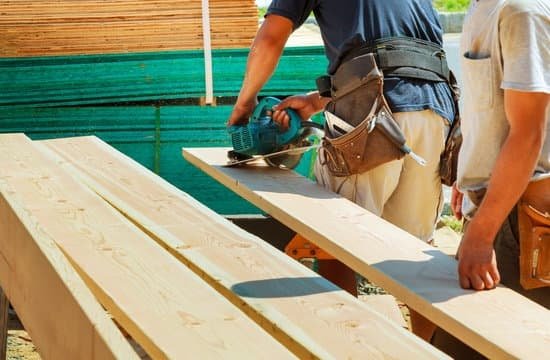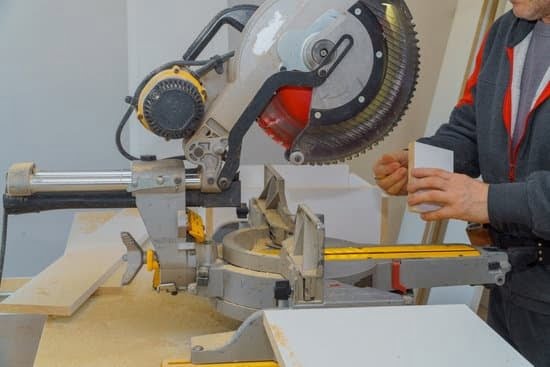Woodworking enthusiasts know that having the right tools is crucial to creating quality projects. While store-bought woodworking tools are readily available, many artisans also find joy in crafting their own tools for a more personalized touch. In this article, we will explore the world of shop built woodworking tools, highlighting the benefits of using them and providing a guide on how to create your own.
By opting for shop built woodworking tools, artisans can customize their equipment to suit their specific needs and preferences. Whether it’s adjusting the size, material, or design, these DIY tools offer a level of flexibility that can enhance the woodworking experience. Additionally, building your own tools can be a cost-effective alternative to purchasing pre-made ones, making it an attractive option for hobbyists looking to save money.
Throughout this article, we will delve into the various aspects of shop built woodworking tools, from showcasing some of the top tools you can make yourself to providing resources for finding inspiration and plans. Whether you’re a seasoned woodworker looking to expand your collection or a beginner eager to get started on your woodworking journey, embracing the DIY spirit with shop built tools can add a unique flair to your craft.
Benefits of Using Shop Built Woodworking Tools
Using shop built woodworking tools offers a wide range of benefits for both experienced craftsmen and beginners alike. These tools are not only cost-effective but also allow for customization, creativity, and a sense of achievement. Here are some key advantages of using shop built woodworking tools:
- Cost-Effectiveness: Building your own woodworking tools can save you a significant amount of money compared to purchasing them from a store. This is especially beneficial for those on a tight budget or hobbyists looking to expand their workshop without breaking the bank.
- Customization: When you create your own woodworking tools, you have the freedom to customize them according to your specific needs and preferences. Whether it’s adjusting the size, shape, or functionality, shop built tools can be tailored to suit your projects perfectly.
- Learning Experience: Building your own woodworking tools provides an excellent opportunity to enhance your skills and knowledge in woodworking. It allows you to understand how different tools work, improve your craftsmanship, and gain a deeper appreciation for the art of woodworking.
In addition to these benefits, shop built woodworking tools also promote sustainability by reducing waste and promoting reuse of materials. By repurposing old or unused items into functional tools, woodworkers can contribute to environmental conservation efforts while honing their craft. Ultimately, the use of shop built woodworking tools empowers individuals to take control of their projects and unleash their creativity in the workshop like never before.
- Precision: Custom-built tools often provide greater precision than store-bought options because they can be tailored specifically for the task at hand.
- Sense of Accomplishment: The satisfaction that comes from using a tool that you have personally crafted is unmatched. It creates a sense of pride and accomplishment that enhances the overall enjoyment of woodworking projects.
- Versatility: Shop built woodworking tools can be designed to serve multiple purposes or adapt to various projects, making them versatile additions to any woodworker’s toolbox.
Top Shop Built Woodworking Tools You Can Make
When it comes to woodworking, having the right tools can make a huge difference in the quality of your work. While there are many options available for purchase, building your own shop built woodworking tools can be a satisfying and cost-effective alternative. Here are some top shop built woodworking tools that you can easily make yourself:
- Workbench: A sturdy workbench is essential for any woodworking project. You can customize the size and features of your workbench to fit your specific needs, whether it’s adding drawers for storage or a vise for holding pieces in place.
- Sanding Block: Instead of buying expensive sanding blocks, you can easily make your own using scrap wood and adhesive-backed sandpaper. This simple tool is perfect for smoothing out rough edges and surfaces.
- Miter Saw Stand: A miter saw is a versatile tool for making angled cuts, and building a stand for it can improve stability and accuracy. By constructing a customized stand with adjustable supports, you can streamline your cutting process.
These shop built woodworking tools not only save you money but also allow you to tailor them to fit your unique workspace and projects. By investing time in creating these tools, you can enhance your woodworking skills and efficiency in the workshop. Plus, the satisfaction of using tools that you’ve made yourself adds an extra level of pride to your craft.
Whether you’re a seasoned woodworker or just starting out, building your own shop built woodworking tools is a rewarding endeavor that can elevate your craft to new heights. With some basic materials, creativity, and guidance from plans or tutorials, you can create custom tools that not only meet but exceed your expectations. Embrace the DIY spirit in your workshop by exploring the world of shop built woodworking tools and take your projects to the next level.
Step-by-Step Guide on How to Build Your Own Shop Built Woodworking Tools
Building your own shop built woodworking tools can be a rewarding and cost-effective way to enhance your woodworking experience. Whether you are looking to customize a tool to perfectly fit your needs or simply enjoy the process of creating something by hand, constructing your own tools can be a fun and fulfilling project. In this section, we will provide you with a step-by-step guide on how to build your own shop built woodworking tools.
One of the first steps in building your own shop built woodworking tools is to determine what specific tool you want to create. Whether it’s a custom push stick, a specialized marking gauge, or a unique bench hook, having a clear idea of the tool you want to build will help guide the rest of the process. Once you have chosen your tool, research different designs and techniques that others have used to create similar tools for inspiration.
Next, gather all the necessary materials and tools needed for the project. This may include wood or metal stock, screws, glue, sandpaper, and any specialized components required for your specific tool. Make sure to measure and cut your materials accurately according to the design specifications you have chosen. Take your time during this step to ensure precision in each cut and joinery technique used in constructing your shop built woodworking tool.
Finally, assemble all the components of your shop built woodworking tool according to the design plan you have selected. Use clamps or other securing methods as needed to hold pieces together while gluing or fastening them in place.
Once assembled, test out the functionality of your newly created tool and make any necessary adjustments for optimal performance. By following these steps and embracing the DIY spirit of woodworking, you can create customized and effective shop built woodworking tools that enhance your craftmanship experience.
| Steps | Description |
|---|---|
| Determine Tool | Choose specific woodworking tool to build |
| Gather Materials | Collect all necessary materials like wood stock, screws etc. |
| Assemble & Test | Put components together according to plan & test functionality |
Tips and Tricks for Using Shop Built Woodworking Tools Safely
Woodworking can be a fulfilling and rewarding hobby, but it is crucial to prioritize safety when using shop built woodworking tools. Here are some tips and tricks to ensure that you can enjoy your craft without risking injury. Firstly, always wear appropriate safety gear such as goggles, ear protection, and a dust mask to protect yourself from potential hazards. Additionally, make sure to keep your workspace well-lit and organized to prevent accidents caused by clutter or poor visibility.
When using shop built woodworking tools, it is important to familiarize yourself with each tool’s specific safety guidelines outlined in the manufacturer’s manual. This includes understanding proper hand placement, how to adjust settings for optimal performance, and being aware of potential kickback or other risks associated with each tool. Furthermore, always unplug tools when changing blades or making adjustments to avoid accidental starts.
Another key aspect of using shop built woodworking tools safely is maintaining and inspecting them regularly. Keep blades sharp, cords in good condition, and replace any damaged parts immediately. It is also recommended to periodically check for proper alignment and calibration to ensure that the tool functions correctly. By staying proactive in maintenance and following these safety tips, you can minimize the risk of accidents while enjoying your woodworking projects.
| Benefit | Description |
|---|---|
| Wear appropriate safety gear | Protect yourself from potential hazards such as flying debris or noise-related injuries. |
| Familiarize with tool manuals | Understand specific safety guidelines provided by manufacturers for each tool you use. |
| Maintain tools regularly | Keep blades sharp, cords intact, and ensure proper alignment for safe operation. |
Cost Comparison
When it comes to woodworking, the tools you use can make a huge difference in the quality of your work. While many woodworkers opt for store-bought tools, there is a growing trend towards using shop-built woodworking tools. These custom-made tools offer a number of benefits over their mass-produced counterparts, including cost savings, increased customization options, and the satisfaction of building your own equipment.
One of the main advantages of shop-built woodworking tools is cost savings. By constructing your own tools using materials you already have on hand or can easily acquire, you can significantly reduce the expenses associated with buying brand new equipment.
This is especially beneficial for beginner woodworkers who may not have the budget to invest in a full set of high-end tools right away. Additionally, building your own tools allows you to tailor them to fit your specific needs and preferences, giving you greater control over the final product.
In addition to cost savings, shop-built woodworking tools offer increased customization options. When you build your own tools, you can modify them to suit your individual workflow and style. Whether you need a tool with a longer handle, a wider blade, or a different angle, creating it yourself allows you to fine-tune every aspect to meet your exact requirements.
This level of customization can lead to improved efficiency and precision in your woodworking projects. So next time you’re in need of a new tool for your workshop, consider embracing the DIY spirit and building it yourself.
Real Life Examples of Woodworkers Who Have Success With Shop Built Woodworking Tools
Woodworkers around the world have been embracing the DIY spirit by creating their own shop built woodworking tools. These innovative and resourceful individuals have found success in crafting their equipment, proving that with a little creativity and ingenuity, anyone can enhance their woodworking experience. By sharing their stories and experiences, they inspire others to take on the challenge of building their tools.
Custom Chisels for Precision Work
One woodworker, Sarah Thompson, discovered that by customizing her chisels to fit specific projects, she was able to achieve a level of precision that store-bought tools could not provide. By shaping the handles to fit her hand perfectly and grinding the blades to her exact specifications, she found that her shop-built chisels improved both her efficiency and the quality of her work.
Unique Woodturning Tools for Artistic Creations
Another craftsman, Mark Johnson, decided to build his woodturning tools after realizing the limitations of store-bought options for creating intricate designs. By experimenting with different designs and materials, he was able to craft specialized tools that allowed him to express his artistic vision effortlessly. The unique shapes and sizes of his shop-built tools gave him the freedom to explore new techniques and push the boundaries of traditional woodturning.
Adapted Clamps for Secure Joints
Woodworker Steve Roberts found success in customizing his clamps for securing joints during glue-ups. By modifying existing clamp designs and inventing new mechanisms, he was able to create versatile clamping solutions tailored to his specific needs. These adapted clamps not only provided a more secure grip but also saved him time and frustration during complex projects. Through these real-life examples, it is evident that shop built woodworking tools offer countless possibilities for innovation and improvement in the workshop.
Resources for Finding Plans and Inspiration for Shop Built Woodworking Tools
When it comes to building your own shop built woodworking tools, finding the right resources for plans and inspiration is essential. Whether you are a seasoned woodworker looking to expand your tool collection or a beginner eager to try your hand at DIY projects, having access to reliable sources can make all the difference in the success of your creations.
Online Woodworking Communities
One of the best places to start when looking for plans and ideas for shop built woodworking tools is online woodworking communities. Platforms like woodworking forums, social media groups, and websites dedicated to DIY projects are treasure troves of information shared by experienced woodworkers. These communities often offer free plans, step-by-step tutorials, and tips from members who have already built their own tools successfully.
Woodworking Magazines and Books
For those who prefer tangible resources, woodworking magazines and books can be excellent sources of inspiration for shop built woodworking tools. Many publications feature project plans, tool recommendations, and expert advice that can help you design and build your own unique creations. Subscribing to a woodworking magazine or visiting the local library for books on woodworking can provide a wealth of knowledge to kickstart your DIY journey.
Online Marketplaces for Plans
If you are looking for more intricate or specialized plans for shop built woodworking tools, consider exploring online marketplaces dedicated to selling digital plans. Websites like Etsy, Gumroad, or specialized platforms for woodworking enthusiasts offer a wide range of plans created by professional woodworkers. While some plans may come at a cost, investing in high-quality designs can save you time and ensure the successful creation of functional and durable shop built tools.
Conclusion
In conclusion, shop built woodworking tools offer not just a cost-effective alternative to store-bought options, but also a way to truly embrace the do-it-yourself (DIY) spirit in woodworking. By constructing your own tools, you not only save money but also gain a sense of accomplishment and pride in your work. The act of building your own tools can enhance your skills and knowledge in woodworking, making the craft even more enjoyable and fulfilling.
Furthermore, using shop built woodworking tools allows for customization to fit your specific needs and preferences. You can tailor each tool to ensure it is exactly what you need for your projects, leading to increased efficiency and precision in your work. This level of personalization is hard to achieve with standard store-bought tools, giving you a unique edge in your woodworking endeavors.
Ultimately, embracing the DIY spirit with shop built woodworking tools opens up a world of creativity and innovation in your craft. Whether you are a seasoned woodworker or just starting out, building your own tools can be a rewarding experience that enhances both your skills and passion for woodworking. So why not give it a try? Explore the world of shop built woodworking tools and see where your creativity takes you.
Frequently Asked Questions
What Is the Tool Most Used in Your Woodworking Shop?
The tool most used in my woodworking shop is definitely the table saw. It is incredibly versatile and essential for rip cuts, crosscuts, bevel cuts, and more. Its accuracy and power make it indispensable for any woodworking project.
What Brand of Tools Is Best for Woodworking?
When it comes to woodworking tools, many professionals swear by brands like DeWalt, Bosch, Festool, and Makita. These companies are known for producing high-quality power tools, hand tools, and accessories that can withstand the demands of professional woodworking.
What Primary Tools Should a Woodworking Shop Buy in Order to Turn Lumber Into Usable Components?
A woodworking shop should invest in a few primary tools to effectively turn lumber into usable components. A good quality table saw is crucial for making straight cuts, while a miter saw will help with angled cuts.
Other essential tools include a jointer for flattening faces and edges of boards, a planer for consistent thickness, and a router for shaping edges and creating joints.

Hi everyone! I’m a woodworker and blogger, and this is my woodworking blog. In my blog, I share tips and tricks for woodworkers of all skill levels, as well as project ideas that you can try yourself.





